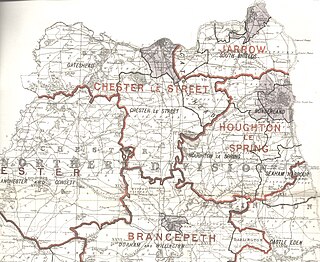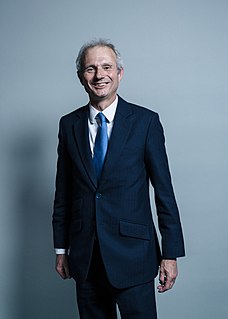
The 1918 United Kingdom general election was called immediately after the Armistice with Germany which ended the First World War, and was held on Saturday, 14 December 1918. The governing coalition, under Prime Minister David Lloyd George, sent letters of endorsement to candidates who supported the coalition government. These were nicknamed "Coalition Coupons", and led to the election being known as the "coupon election". The result was a massive landslide in favour of the coalition, comprising primarily the Conservatives and Coalition Liberals, with massive losses for Liberals who were not endorsed. Nearly all the Liberal MPs without coupons were defeated, although party leader H. H. Asquith managed to return to Parliament in a by-election.
Wednesbury was a borough constituency in England's Black Country which returned one Member of Parliament to the House of Commons of the Parliament of the United Kingdom from 1868 until it was abolished for the February 1974 general election.
The Prestwich by-election, 1918 was a parliamentary by-election held for the British House of Commons constituency of Prestwich on 24 October 1918. The seat had become vacant upon the death in action near Merville of the sitting Liberal MP, the Hon. Captain Oswald Cawley.
The Middleton and Prestwich by-election, 1920 was a by-election held on 22 November 1920 for the British House of Commons constituency of Middleton and Prestwich in Lancashire.

Sir William Ryland Dent Adkins was an English barrister, judge and Liberal politician.

The Bodmin by-election, 1922 was a parliamentary by-election for the British House of Commons. The constituency of Bodmin in Cornwall polled on 24 February 1922. The by-election was notable for the opposition Liberal Party gaining a seat from the Coalition supporting Conservative Party.
The Pontefract by-election, 1919 was a parliamentary by-election held for the British House of Commons constituency of Pontefract in Yorkshire on 6 September 1919.
The Rossendale by-election, 1917 was a parliamentary by-election held for the British House of Commons constituency of Rossendale on 13 February 1917.
The Bedford by-election, 1921 was a parliamentary by-election held for the House of Commons constituency of Bedford on 23 April 1921.
The Cardiganshire by-election, 1921 was a parliamentary by-election held for the British House of Commons constituency of Cardiganshire on 18 February 1921. The election was important for the bitterness of the contest between the Coalition and Independent factions within the Liberal Party and the deepening of this division within the party as a factor in the long term decline of Liberalism in Wales.
The Wansbeck by-election, 1918 was a parliamentary by-election held for the House of Commons constituency of Wansbeck in Northumberland on 28 May 1918.
The Bosworth by-election, 1927 was a parliamentary by-election for the House of Commons constituency of Bosworth in Leicestershire on 31 May 1927.
The St Albans by-election of 1919 was a parliamentary by-election held in England in December 1919 for the House of Commons constituency of St Albans in Hertfordshire.
The Chesterton by-election, 1916 was a parliamentary by-election held for the House of Commons constituency of the Chesterton or Western Division of Cambridgeshire on 20 January 1916.
The Spalding by-election, 1917 was a parliamentary by-election held for the House of Commons constituency of Spalding in Lincolnshire on 25 October 1917.
The North East Derbyshire by-election was a Parliamentary by-election. It returned one Member of Parliament to the House of Commons of the United Kingdom, elected by the first past the post voting system. About a third of the electorate were directly involved in the mining industry. This was the penultimate by-election to take place before the outbreak of the First World War. It demonstrated the weakness of support for the Labour party in 1914 when opposed by a Liberal party candidate.

The North West Durham by-election was a Parliamentary by-election held on 30 January 1914. It returned one Member of Parliament to the House of Commons of the United Kingdom, elected by the first past the post voting system.
The South Monmouthshire by-election, 1917 was a by-election held on Thursday 12 July 1917 for the British House of Commons constituency of the Southern Division of Monmouthshire in South Wales.
The Edinburgh South by-election, 1917 was a parliamentary by-election held for the House of Commons constituency of Edinburgh South in Scotland on 12 May 1917.
The Inverness-shire by-election, 1917 was a parliamentary by-election held for the House of Commons constituency of Inverness-shire in the Scottish Highlands on 2 January 1917.










